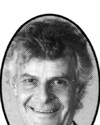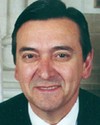The hon. member opposite talks about the auditor general. In fact, this power existed before the amendment I just mentioned. This is not a good example, because this power has existed for a long time. It existed before Standing Order 108(2). In fact, the power of the public accounts committee to review the auditor general's report is similar to the power now held by other committees; it did not exist before.
In that sense, I am glad the hon. member raised the issue. Committees have a much freer hand today than they did, say, 10 or 12 years ago when I first came to this hon. House.
Of course, much more headway has been made since this government took office and opened up all sorts of new ways to improve the efficiency of parliamentary committees.
We have, for instance, seen some of the work done by the foreign affairs and environment committees in dealing with issues ranging from pollution, circumpolar issues and so on. The foreign affairs committee is, as I understand it, studying the possibility right now of doing work in that regard. All of this would have been impossible under the rules as they existed only a few years ago.
We saw a joint committee early in this Parliament do a review of both the foreign affairs department and the defence policy put together. This was a joint effort of the foreign affairs committee and the defence committee. This was early in Parliament. They did an excellent report, widely quoted, and this work was done under the able chairmanship of the then member for Ottawa-Vanier, now a member of the other place, Senator Jean-Robert Gauthier. That kind of excellent work was done in this Parliament by the parliamentary committees.
The point I am making here is that the parliamentary committees have a role to play today which is far different than the one I knew when I came here. I only wished that as a new member I would have had the power to do all these things that new members today as they come here in Parliament are experiencing. The level of frustration that some of us had many years ago when we tried to do anything in committees was unbelievable.
I see my distinguished colleague from Edmonton who was a member in this House several years ago at the time when I believe estimates were probably done right on the floor of the House of Commons. There was little or no work done by committees. You could not even call witnesses before a parliamentary committee. You could barely hear testimony of any kind with regard to legislation.
Today we have committees sitting in Ottawa, bringing experts to give advice so that we can improve on the legislation of the government and study issues far and wide. All of these opportunities would have been virtually impossible before.
We have starting next week the standing committee on justice travelling to look at the Young Offenders Act. I am sure it will produce an excellent report.
I hear a member of the Reform Party being critical already but I am not that negative about the Reform member who will be sitting on that committee. I think he will probably do a good job. I am willing to give the benefit of the doubt to the hon. member, notwithstanding the criticism which is already starting by some of his colleagues. That is okay.
We have faith in some of the Reform members. We say that the ones on that committee will hopefully do a good job. I hope they do. I am still hopeful. I hope those Reformers do not take personally the criticism of their own colleagues we have just heard. We are on their side. We will defend those Reformers sitting on the justice committee.
The parliamentary committees have done a very good job over recent years. In this Parliament we have seen them do excellent work. We have seen them produce legislation. We have seen them produce reports. We have seen them study various issues, make recommendations to Parliament and we have seen many of those recommendations turned into law.
During the 1993 election campaign our party had the red book. I know you are a non-partisan person, Mr. Speaker, but nevertheless I am sure you will recall those of us who are more partisan-








